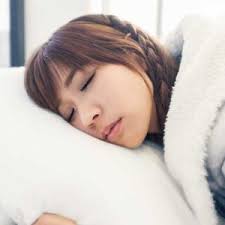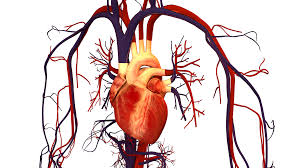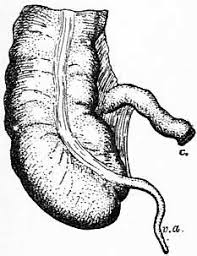By Dr. John Gaston, Beaver Falls, Pa.
Natural sleep is that condition of physiological repose in which the molecular movements of the brain are no longer fully and clearly projected upon the field of consciousness; in other words, sleep is a regularly recurring, physiological depression of the functional activity of the brain, during which the exhausted tissues of the body may recuperate.
Unconsciousness is not necessarily sleep. H. C. Wood distinguishes as follows: Sleep is that condition of unconsciousness in which the subject is readily aroused, and when aroused is easily kept awake by external simulations or by his willpower; Stupor, that condition in which the subject is aroused with great difficulty and, when left to himself, relapse into unconsciousness; Coma, that state in which it is impossible by external irritation to restore consciousness.
Sleep is preceded by a stage of weariness, which is an expression of the failing energy of the brain; there is heaviness of the body and mind, thoughts flow slowly and often with appreciable lack of clearness, the special senses are dulled, muscular fatigue is felt, the eyes are kept open with difficulty, and it requires a strong effort of will to overcome evident indisposition to further activity.
The hypnogogic state, the stage of transition from waking to sleeping, is characterized by a consciousness of approaching rest; the body settles into a position of comfortable relaxation, the eyelids close, the special senses are lulled.
There is at first an exaltation of the reflex energy of the spinal cord, as shown by the sudden muscular jerkings in persons who are exceedingly tired; soon this disappears.
Of the special senses, that of hearing remains active longest, in part, probably, because the external portion of the organ of hearing remains exposed to external stilili. Soon the power of volition ceases, the logical association of ideas is temporarily lost, as are also the reasoning faculty and judgment, and the profound unconsciousness of natural sleep prevails. The average duration of sleep is about eight hours. It is heaviest during the first hour, reaching its maximum at the end of that time; during the next hour it diminishes rapidly; during the next five hours it constantly grows lighter, and vanishes at the expiration of about eight hours.
Not only have scientific experiments (Kohlschuetter) proven this, but universal experience emphasizes the statement that the first sleep is the heaviest and the wakefulness and dreams prevail during the early hours of the morning. During sleep the respiratory movements are reduced nearly one-fourth in frequency; they are more largely coastal than diaphragmatic, and the act of inspiration is prolonged. The pulsations of the heart are reduced ten or more beats to the minute in the adults and from twelve to sixteen or more beats per minute in children. The temperature is lowered; and elevated temperature during sleep always indicates a pathological condition (Demme). The secretions are diminished, as shown in the comparative dryness of the eyes and mouth and the lessened pathological secretion of nasal catarrh; the amount of urine and other excrementitious matter is also much less during sleep than during waking hours. There is a lessening of the amount of oxygen absorbed and of carbonic acid gas exhaled. Whether or not, the brain is ever to all intents and purposes fully asleep, without a single manifestation of intellectual activity, so that there is an absolutely dreamless sleep is still an open question. Some high authorities affirm the contrary and maintain that the brain is always on the alert; if this be so, the profound unconsciousness of sleep is unreal and arises simply from failure of memory. The reduction of function is not uniform throughout; the functional activity of one organ may be wholly suspended, while elsewhere there is only partial cessation of function; actual increase beyond that which characterizes a state of waking may exist in some part of the body, hence the phenomena of dreams and somnambulism.
Insomnia, or abnormal wakefulness, may arise from irritation of the peripheral portion of the sensory apparatus or from central causes. To the former belong irritations of the organs or special sense, which, in the milder and transient form, rarely cause more than passing wakefulness. Thus the action of light upon the eyes disturbs sleep. This is easily demonstrated by the inability of infants to sleep when exposed to a bright light and the readiness with which adults will awaken from sound sleep when the room is suddenly illuminated by the reflection from a fire. We all know when there is a total eclipse at any time of day, the whole animal world to compose itself to sleep. The sense of hearing remains comparatively active during sleep, and often persons who are otherwise heavy sleepers are quickly roused by noise.
Heat, especially humid heat, is an enemy of sleep; witness the hot, exhausting, sleepless mid-summer nights, especially with a southern wind.
Cold, if extreme, produces stupor and death; if severe, it excites wakefulness; if pleasing, it favors sleep. All people naturally seek a moderately cool room for a sleeping chamber; they are, however, kept awake by cold feet.
Pain is a very common cause for insomnia, peripheral or central. The former, as a sting of insect, etc., painful itching or neuralgia, etc. Colic, respiratory disturbances are examples of the latter.
Treatment of Insomnia. – The following are the most important agent used in the treatment of insomnia: Hot baths, comfortable to patients, not to exceed ten minutes; Turkish baths, with shower baths and massage, are excellent.
Food – Hot, nourishing food in cases caused by exhaustion. Milk, heated, salted, and partly predigested Koumyss. Eggnoggs, meat juices.
Should not take tea, coffee, at noon or night.
Cold Sitz baths are sedative, 900 to 600 temperature, gradually decreased to 600.
REMEDIES – Aconite, Bryoina, Cham., Coffea crud., Cyclamen, Gel., Hyos., Ignatia, Kali carb., Nux, Opium, Phos., Plat., Puls., Kali phos.
Hypnotics – No other class of drugs is so abused by medical men who are ever ready to humor the whims of a patient regardless of their real interests. In cases where their employment is based upon actual necessity they prove a blessing.
Paraldehyde, 45 to 160 grs., is one of the most reliable hypnotics when insomnia arises from cerebral byperamia not from pain. It neither causes primary excitement nor cardiac depression. On account of its disagreeable taste the following is a good formula: Paraldehyde, grs. 20: spts. 100; Simple Syrup, 75; Tincture Vanilla 5. Of this mixture each ounce contains 45 grs. of Paraldehyde, this can be dissolved still further by sweetened water.
Chloral Hydrate – from exhaustion of nerve centers, 20-30 grs. in water, preferably peppermint water, followed in one hour by 20 grs. more, if necessary.
Opium – When due to pain. Morphia sulph., better with addition of atropin 1-120 to 1-100 to ¼ gr.
From over-excitement, etc. – Bromides.
- Lithium Bromide. 20 grs., every 1 to 2 hours.
- Sodium Bromide, 30-40 grs., every 2 hours.
- Calcium Bromide, 20 grs., every 1 to 2 hours.
- Potassium Bromide, 30-40 grs., every 2 hours.
Narcolepsy is a neurosis characterized by an overwhelming desire to sleep, of short duration, and occurring at irregular intervals.
Somnambulism is a condition of sleep and unconsciousness in which the subject performs acts which seem to involve the exercise of consciousness and volition; in other words, it is a dream carried into action. Unlike dreams this occurs in the early sleep, when sleep is most profound. This undoubtedly explains why the memory takes no cognizance whatever of the occurrence.
The most important forms are somnambulistic lethargy – a condition which outwardly resembles deep sleep, lasting from hours to weeks and months. May have lucid intervals. Complete unconsciousness.
Somnambulic dreams are more common, and differ from the ordinary dreams in that they are acted out. The night terrors of children belong here.
Acts of violence are often done when in this state. May get up out of bed, hears a noise, grasps a gun, and may prove fatal to anyone in the house. When fully awake he knows nothing of the occurrence. In other cases he may get out of bed, walk about as though perfectly conscious of his acts, often performs startling feats, climbing, writing, sewing. Playing musical instruments, etc. The eyes may be closed or opened. He may obey a command to go back to bed or he may not, but, after a time, obeys.
Somnambulic life is a rare condition in which our subject appears like any other person. Seemingly in possession of all his faculties, but has periods during which he lives and existence wholly distinct from his normal life, these states being divided from each other by a more or less complete break in the chain of memory. To this class belong the cases of individuals who get lost and are found at great distances from home or who return home after having traveled over extensive territory, having done business with experienced men who saw nothing abnormal in their appearance or actions. Who in every way behaved like persons who knew what they were about and yet remembered absolutely nothing of what occurred during the entire period.
One case of a young lady falling into a long and profound sleep without any warning. When she awakened from the sleep it was found she had lost every trace of acquired knowledge. It became necessary for her to begin learning all over again, reading, spelling, etc. She gradually improved. When she, after a few months, had a second fit and, on arousing from it, she found herself restored to the state in which she was before the first paroxysm.
The hypnotic state in somnambulism is artificially produced
~~Arndt, Nash, Pierce.





